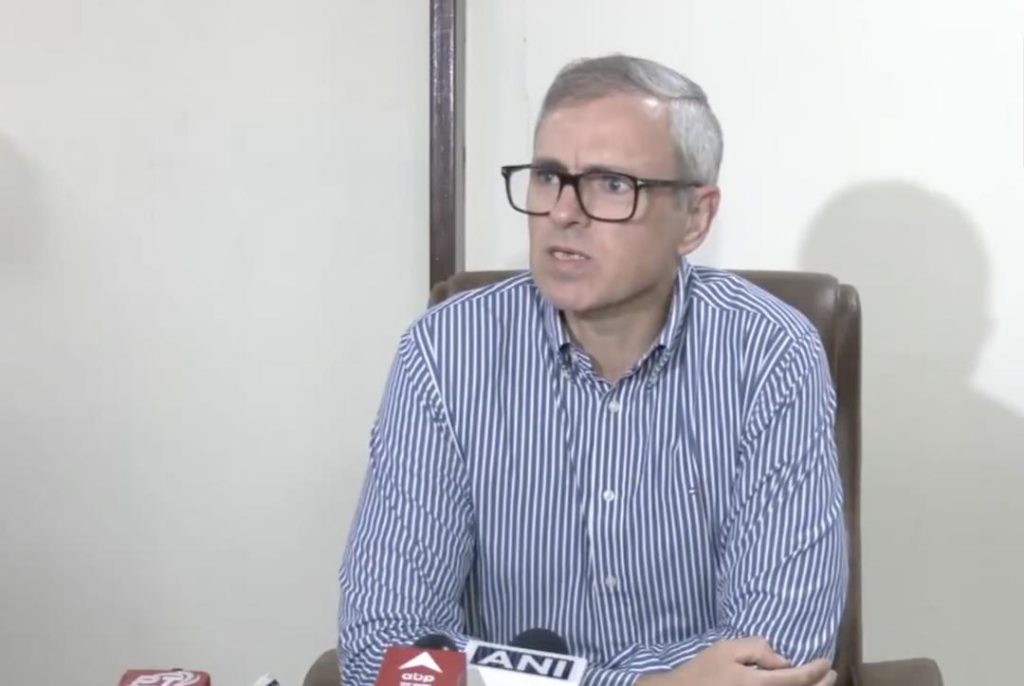
Why Should I Send Water to Punjab?: J&K CM on Canal Proposal
The recent proposal to construct a 113 km-long canal to redirect surplus water from three western rivers of the Indus system in Jammu and Kashmir (J&K) to Punjab, Haryana, and Rajasthan has sparked a heated debate. J&K Chief Minister Omar Abdullah has strongly reacted to the proposal, raising questions about the necessity of diverting water to Punjab. In this blog post, we will delve into the controversy surrounding the canal proposal and explore the CM’s concerns.
The canal proposal, which has been in the works for several years, aims to utilize the surplus water from the Chenab, Jhelum, and Ravi rivers, which flow through J&K. The water will be diverted to the states of Punjab, Haryana, and Rajasthan, which are facing severe water scarcity. While the proposal might seem like a solution to the water crisis in these states, J&K CM Omar Abdullah has expressed reservations about the plan.
During a recent press conference, CM Abdullah questioned the logic behind diverting water to Punjab, stating, “Why should I send water to Punjab? Punjab already had water under the Indus Waters Treaty.” He added, “Did they give us water when we needed it?” This statement highlights the long-standing concern of J&K about the unequal distribution of water resources under the Indus Waters Treaty, which was signed in 1960.
The Indus Waters Treaty is a bilateral agreement between India and Pakistan that allocates the waters of the Indus River system between the two countries. Under the treaty, Pakistan has the right to use the waters of the western rivers (Chenab, Jhelum, and Ravi) for irrigation and other purposes, while India has the right to use the waters of the eastern rivers (Sutlej, Beas, and Ravi) for the same purposes. J&K, which is a disputed region between India and Pakistan, has historically been a major beneficiary of the Indus Waters Treaty, receiving a significant portion of the waters from the western rivers.
However, CM Abdullah’s concerns go beyond the Indus Waters Treaty. He has emphasized that J&K needs water for its own irrigation and drinking purposes, and diverting water to other states would exacerbate the existing water scarcity in the region. Moreover, the CM has raised questions about the feasibility of the canal proposal, citing the complex geography and hydrology of the region.
The J&K government has also expressed concerns about the environmental impact of the canal proposal. The diversion of water from the western rivers would likely alter the natural flow of the rivers, affecting the ecology and biodiversity of the region. Additionally, the construction of the canal would require significant land acquisition, displacement of people, and could lead to social and economic upheaval.
In recent years, J&K has been facing a severe water crisis, with many areas struggling to access potable water. The construction of dams and water treatment plants has been a major challenge, and the state government has been working to improve water management and conservation practices. Diverting water to other states would only exacerbate the existing water scarcity in J&K, making it difficult for the state to address its own water needs.
The canal proposal has also raised concerns about the lack of transparency and consultation in the decision-making process. The J&K government has accused the Centre of not involving the state in the decision-making process and not providing adequate information about the proposal. This lack of transparency has led to widespread resentment among the people of J&K, who feel that their concerns are being ignored.
In conclusion, the proposal to construct a 113 km-long canal to redirect surplus water from J&K to Punjab, Haryana, and Rajasthan is a contentious issue that requires careful consideration. While the canal might seem like a solution to the water crisis in these states, J&K CM Omar Abdullah’s concerns about the unequal distribution of water resources and the feasibility of the proposal are valid. The Centre must engage in a transparent and consultative process to address the concerns of the J&K government and the people of the region.






